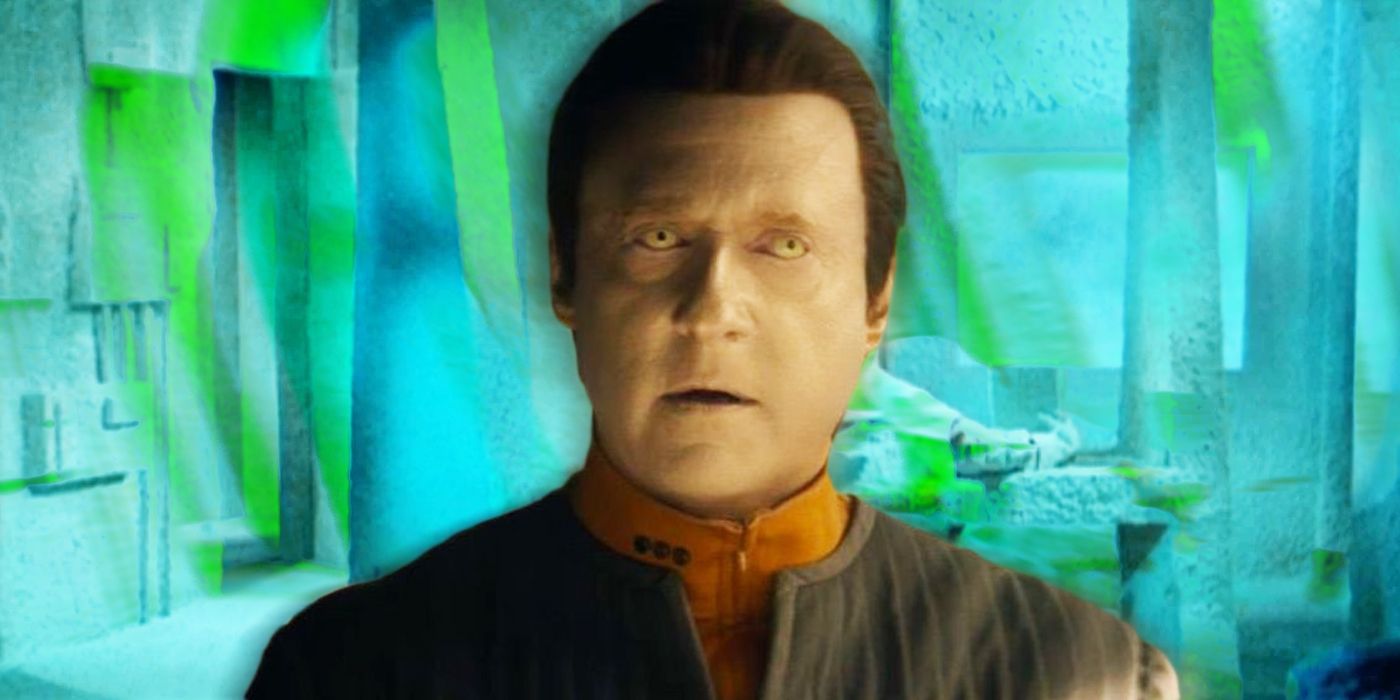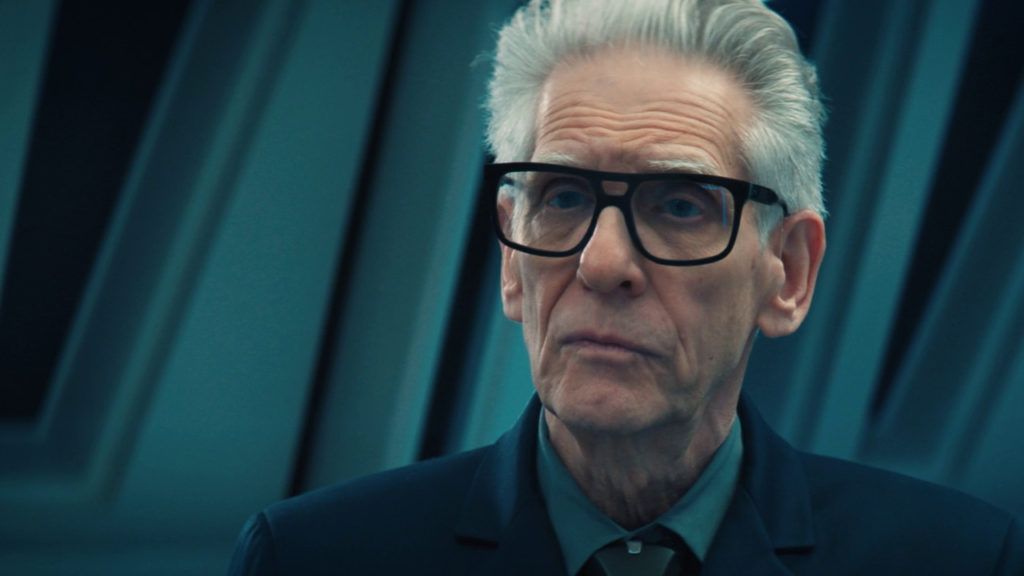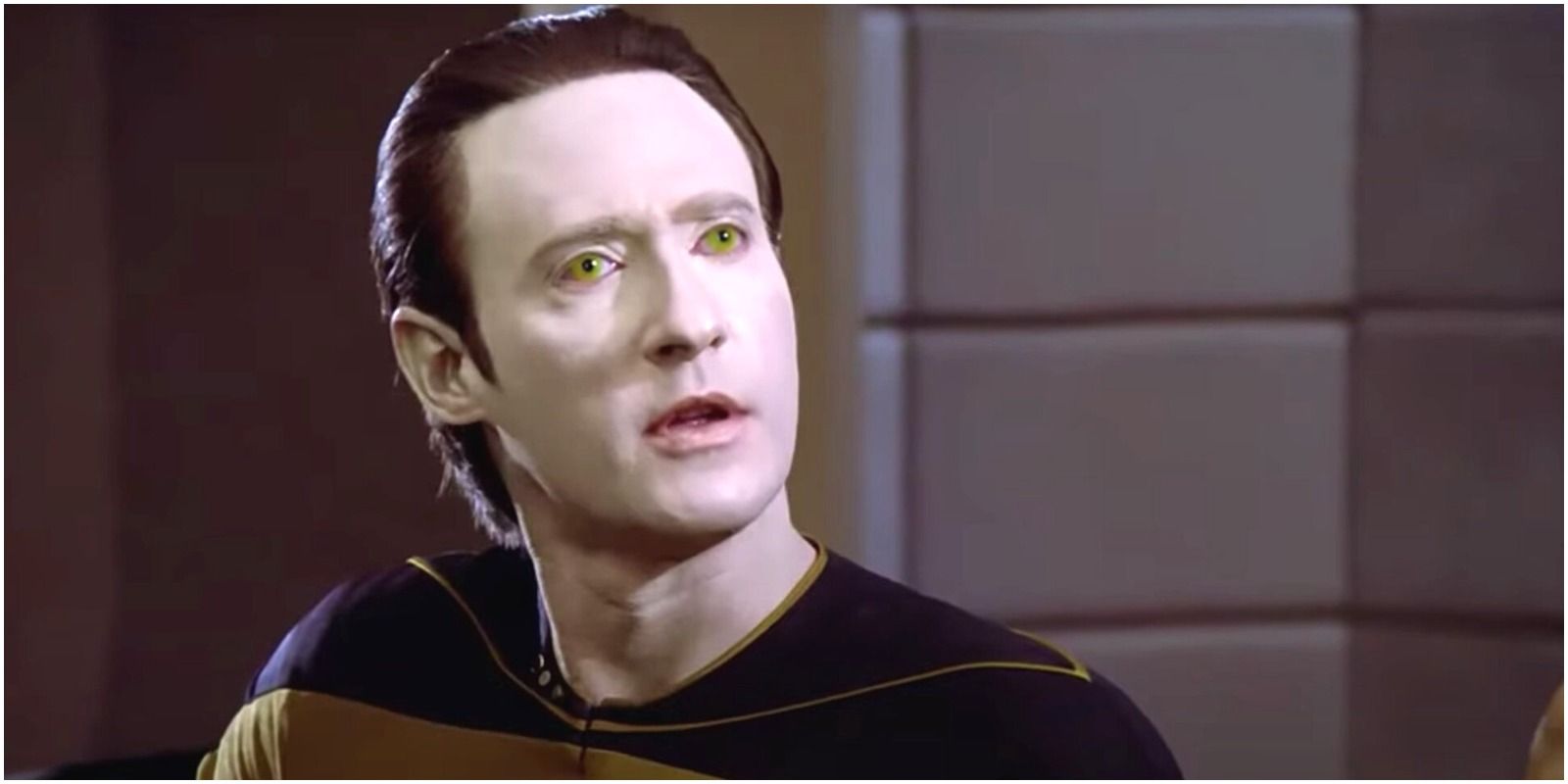WARNING: The following contains spoilers for Star Trek: Discovery Season 4, Episode 7, "... But to Connect," streaming now on Paramount+.
The USS Discovery has long been one of the most unique vessels in Starfleet's armada, no matter what century it finds itself cruising the cosmos. While this originally was due to the starship being propelled by its tardigrade-fueled Spore Drive, the Discovery's ship computer has rapidly evolved to form her own consciousness after absorbing an ancient, extraterrestrial data depository known as the Sphere before transporting the ship and crew to the 32nd century. And as Starfleet Command learns that the Discovery's computer has become sentient and developed a persona named Zora, it revives the synthetic life debate popularized by Star Trek: The Next Generation.
This debate is revived when Zora is able to calculate where a destructive dark matter anomaly originated after Starfleet determines the singularity was artificially created by an entity existing outside of the galaxy. However, Zora decides to withhold this information from the crew, even in the face of Captain Michael Burnham's direct orders, as she worries this will place the crew in danger. In response, Starfleet Command sends in its specialist Doctor Kovich to determine if Zora's very existence violates Starfleet's strict policy against starships possessing integrated artificial intelligence programs. Should Kovich's assessment find that Zora does indeed qualify as a violation, he plans to extract her from Discovery's systems by any means necessary.
Starfleet presumably has maintained its policy against integrated artificial intelligence likely in response to the malevolent A.I. program Control, which took control of Starfleet's black ops division Section 31 in the 23rd century and nearly wiped out all organic life in the galaxy before being defeated by the Discovery and Enterprise. Discovery's Chief Engineer Paul Stamets reminds Kovich and the senior officers of the threat that Control posed, still visibly shaken by the Discovery's conflict with it and in favor of Kovich extracting Zora from the Discovery or using a fail-safe device to destroy her and prevent her from similarly running amuck.
The idea of synthetic life being an individual and possessing legal protections arose in the memorable TNG Season 2 episode "The Measure of a Man." A Starfleet scientist named Bruce Maddox attempted to take control of Data in order to dismantle and mass-produce a line of similar androids, arguing that Data was technically Starfleet property instead of his own individual. Data and Captain Picard successfully mounted a legal defense that led to Starfleet officially recognizing Data as an autonomous individual. The rights of synthetic beings would also serve as a major theme in Star Trek: Picard Season 1, with synthetic life outlawed for years after an android triggered a terrorist attack on Mars until it was revealed to be part of an elaborate Romulan plot.
Ultimately, Kovich sees Zora as a new form of life rather than an integrated A.I. he feared would be present onboard the Discovery. With this in mind, Zora is not only permitted to continue to exist but also remain on the Discovery rather than be destroyed or extracted from the Discovery's systems. While Starfleet is well-aware of the threat that a malevolent A.I. could unleash upon the galaxy, it also still respects and protects synthetic life whenever it surfaces, including among its vessels. Zora is extended the same protections and recognition that Data earned, underscoring that the 32nd century hasn't taken a step back in its virtues even after the Burn.
To see TNG's A.I. debate return, Star Trek: Discovery Season 4 releases new episodes Thursdays on Paramount+.



